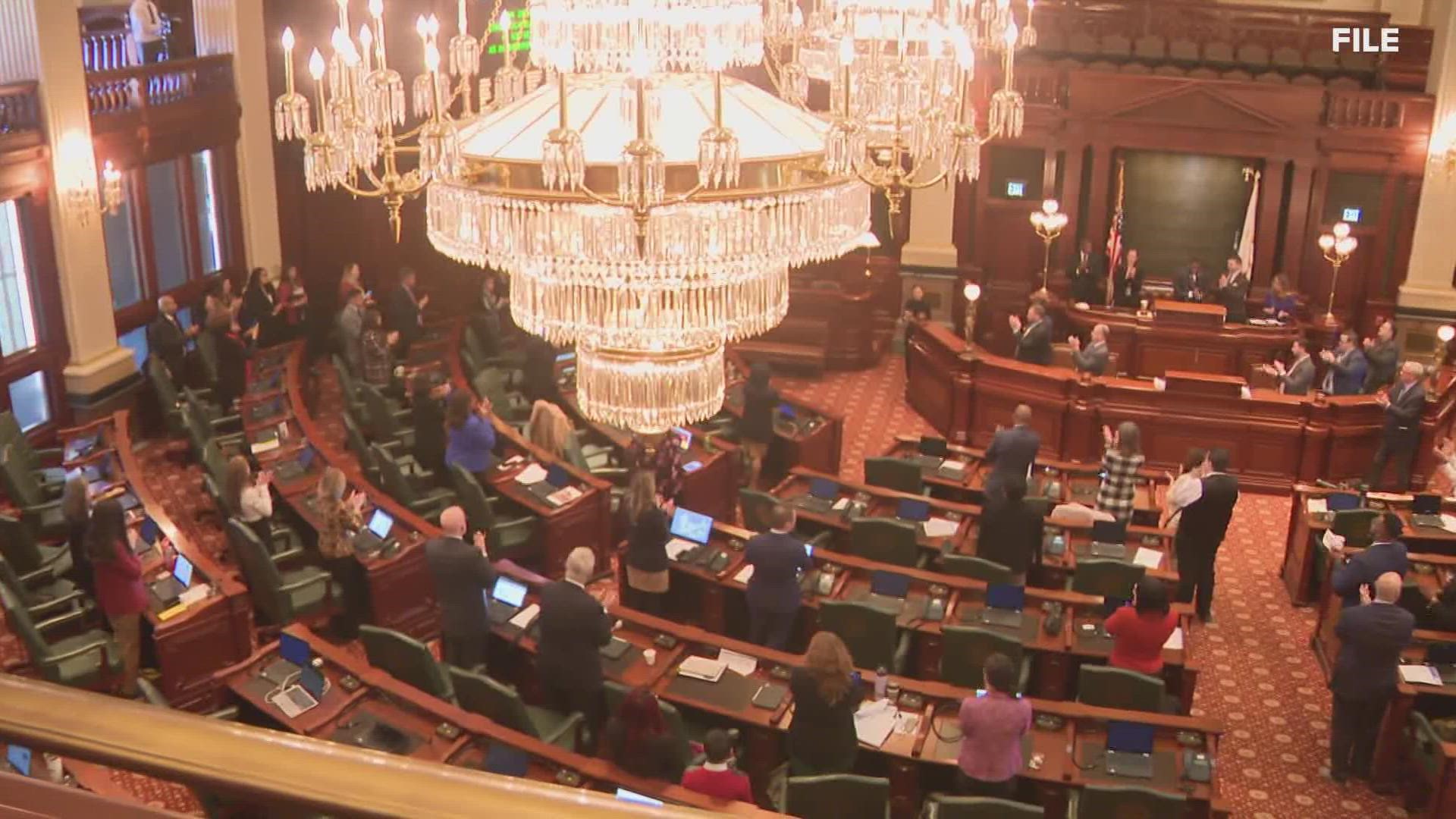KANKAKEE COUNTY, Ill. — The Illinois Supreme Court announced that the new SAFE-T act would not go into effect on Jan. 1. The court has halted the law, which would have ended cash bail in the state.
It comes after a judge in Kankakee County ruled this week that the cash bail provision was unconstitutional. The Illinois Attorney General appealed to the Illinois Supreme Court, and justices announced Saturday the law will be put on hold until the court can hear that appeal.
A chief judge of the 21st Judicial Circuit Court ruled in favor Wednesday of a lawsuit and held the part of the SAFE-T Act unconstitutional, specifically the bail reform and pretrial release provisions.
According to a news release from the Office of the Kankakee County State’s Attorney, these provisions will not go into effect in the 64 counties throughout Illinois that were parties in the lawsuit. The other provisions of the SAFE-T (Safety, Accountability, Fairness and Equity-Today) Act, such as body cameras, training and more were upheld.
Illinois Attorney General Kwame Raoul said he will appeal the decision to the Illinois Supreme Court.
Judge Thomas W. Cunnington held the SAFE-T Act unconstitutional on the basis that it violates the separation of powers clause, the Victim Rights Act and unconstitutionally amends Article 1, Section 9 of the Illinois Constitution because the voters were denied their right to vote on such amendments.
In his ruling, Cunnington found that “had the legislature wanted to change the provisions in the Constitution regarding eliminating monetary bail … they should have submitted the question on the ballot to the electorate at a general election” and said the legislature’s action in violation of the separation of powers “stripped away” the court’s ability to ensure the safety of the victim and victim’s family.
Kankakee and Will counties were the first counties to file suit and thereafter, the Illinois Supreme Court consolidated all 64 cases into the Kankakee County case. Together, they make up about two-thirds of the counties in Illinois.
The plaintiffs were represented by a team consisting of the state’s attorney and their assistant state’s attorneys from Kankakee, Will, Vermilion, Kendall, McHenry and Sangamon counties. Madison and Monroe counties are two of 64 counties opposing the Safe-T Act.
The suit was filed against Gov. J.B. Pritzker, Raoul, Senate President Donald Harmon and Speaker of the House Christopher Welch, according to the release.
Raoul issued the following statement in response to Cunnington’s opinion:
The court’s opinion does not disturb other portions of the SAFE-T Act that have been in effect for more than a year.
Although the court’s decision is binding in the 64 cases that were consolidated in Kankakee County, it is important to note that it is not binding in any other case, including those involving criminal defendants in any of the state’s 102 counties. To definitively resolve this challenge to the pretrial release portions of the SAFE-T Act, Governor Pritzker, the legislative leaders named in the consolidated cases and I intend to appeal the circuit court’s decision directly to the Illinois Supreme Court, where we will ask the court to reverse the circuit court’s decision.
Most of the SAFE-T Act’s provisions have been in effect for more than a year, and regardless of today’s circuit court decision, all parts of the SAFE-T Act, including the pretrial release portions addressed in the court’s decision, will go into effect Jan 1. For instance, the right of individuals awaiting criminal trials – people who have not been convicted of a crime and are presumed innocent – to seek release from jail without having to pay cash bail will go into effect in a few short days, despite the court’s ruling against those provisions. Illinois residents in all counties should be aware that the circuit court’s decision has no effect on their ability to exercise their rights that are protected by the SAFE-T Act and the Illinois Constitution.
Pritzker provided the following statement:
Today’s ruling is a setback for the principles we fought to protect through the passage of the SAFE-T Act. The General Assembly and advocates worked to replace an antiquated criminal justice system with a system rooted in equity and fairness. We cannot and should not defend a system that fails to keep people safe by allowing those who are a threat to their community the ability to simply buy their way out of jail. I thank the Attorney General for his work on this case and look forward to the Illinois Supreme Court taking up the appeal as soon as possible.
Madison County State’s Attorney Tom Haine issued the following statement:
“Yesterday’s ruling on the SAFE-T Act was welcome news across the State. As this ruling explains, the core of this 765-page bill -- the elimination of judicial discretion over monetary bail -- was an attempt by the General Assembly to amend the bail provisions of our Illinois Constitution without giving the citizens their Constitutionally-required opportunity to vote on such an amendment. Thankfully, due to this ruling, the elimination of cash bail has been halted in Madison County for now. But, this is far from over. We expect the defendants to appeal, and if so, Madison County will continue the fight against this law in the court system along with the other litigating parties.”
An Illinois sheriff said he is preparing for the changes on Jan. 1 until further notice.

